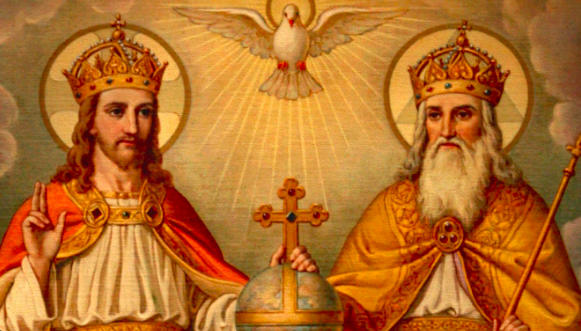The Trinity is a foundational doctrine within Christianity that describes the nature of God as three distinct persons—Father, Son, and Holy Spirit—yet one in essence or substance. This concept seeks to explain the multifaceted nature of God as revealed in the Bible.
- Father: The first person of the Trinity is God the Father, often described as the Creator and sustainer of the universe. He is portrayed as having a loving and paternal relationship with humanity, and prayers are often addressed to Him.
- Son (Jesus Christ): The second person of the Trinity is Jesus Christ, who is both fully divine and fully human according to Christian belief. Christians believe that Jesus, the Son, took on human form, lived a sinless life, died on the cross for the redemption of humanity’s sins, and was resurrected. Through Jesus, believers have access to salvation and eternal life.
- Holy Spirit: The third person of the Trinity is the Holy Spirit, described as the active presence of God in the world and in the lives of believers. The Holy Spirit convicts individuals of sin, guides them in truth, empowers them for service, and provides spiritual gifts to the church.
While the concept of the Trinity is central to mainstream Christian beliefs, it is also complex and has been a subject of theological discussion and debate throughout Christian history. Various councils and theologians have sought to articulate and define this doctrine, leading to statements like the Nicene Creed, which affirms the belief in “one God, the Father Almighty, Maker of heaven and earth, and of all things visible and invisible; And in one Lord Jesus Christ, the only-begotten Son of God… and in the Holy Ghost, the Lord and Giver of life.”
Different Christian denominations may emphasize particular aspects of the Trinity or interpret the doctrine in various ways, but the core belief in one God in three persons remains fundamental to Christian orthodoxy.
